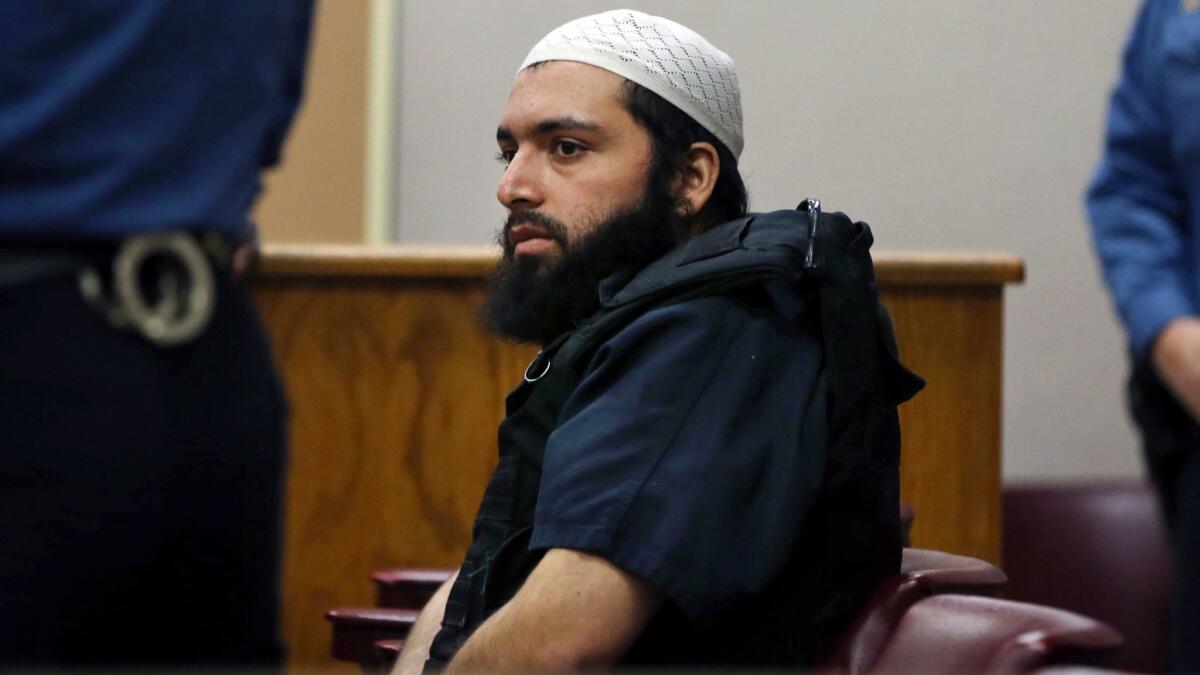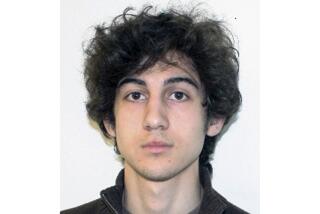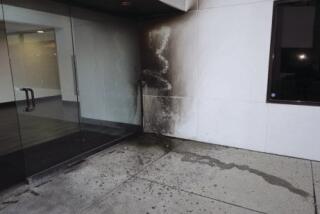Trial begins for man who considered himself a ‘soldier in a holy war’

Ahmad Khan Rahimi thought of himself as “soldier in a holy war,’’ a federal prosecutor told jurors Monday in the opening of Rahimi’s trial on charges of planting pipe bombs in New York.
The 29-year-old Rahimi, who moved to the United States from Afghanistan as a young child, is accused of building and planting two bombs in the Chelsea neighborhood of Manhattan on Sept. 17, 2016. One exploded in a dumpster and injured 35 people walking by on a warm Saturday night. The other did not detonate.
Assistant U.S. Atty. Shawn Crowley told jurors that Rahimi taught himself how to make bombs by watching videos on the internet.
“He designed it. He built it,” Crowley said. “He filled it with explosives and deadly shrapnel and he planted it on the street.”
Rahimi was briefly escorted out of the court for trying to speak while the prosecutor was starting his opening statements. He later apologized to U.S. District Judge Richard Berman and said he was asking for permission to see his wife and children.
Described as a misfit who did poorly in school, Rahimi was the subject of a highly publicized manhunt that ended when he was found asleep in the doorway of a tavern near his home. He was injured in a shootout with police before being arrested.
In New Jersey, Rahimi faces separate charges of shooting at police and detonating a bomb that exploded earlier that day in a trash can near the finish line of a 5K charity race in Seaside Heights, N.J., but caused no injuries.
Rahimi grew up in Elizabeth, N.J., above his parents’ fried chicken restaurant. He is believed to have become radicalized during a trip to Afghanistan. Reportedly, his father notified authorities of his concern about his son being involved in terrorism.
According to a list of exhibits filed by the U.S. attorney’s office in advance of the trial, the prosecution has extensive videos of Rahimi’s travels, text messages, a cellphone video showing him testing bomb components in his backyard, various Jihad-related documents and a pamphlet published by the Islamic State that was seized from his laptop.
And in a blood-stained journal seized at the time of his arrest was a letter he was writing to the U.S. government. “[God willing] the sounds of bombs will be heard in the streets,” it says. “Gunshots to your police. Death to your OPPRESSION.”
Before the trial, the defense succeeded in barring prosecutors from using allegedly incriminating statements Rahimi made to investigators, arguing that he was barely conscious as a result of his injuries.
Twitter: @BarbaraDemick
More to Read
Start your day right
Sign up for Essential California for news, features and recommendations from the L.A. Times and beyond in your inbox six days a week.
You may occasionally receive promotional content from the Los Angeles Times.






